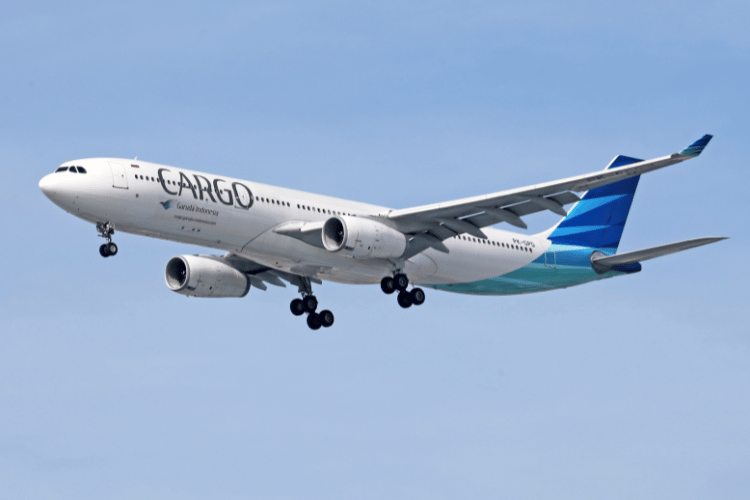
Recovering from a concussion can be a complex and delicate process, especially for individuals with demanding lifestyles, such as athletes and military cadets. Whether it’s understanding the basics of concussions, recognizing symptoms, or navigating the challenges of travel during recovery, having a clear, practical guide is essential. This article provides actionable advice on managing concussion symptoms, preparing for air travel, and ensuring a safe recovery. With tailored tips and real-world examples, it’s designed to help you or your loved ones recover effectively while minimizing risks.
Understanding Concussions
What is a Concussion? Breaking Down the Basics
A concussion is a type of traumatic brain injury (TBI) caused by a bump, blow, or jolt to the head or body that forces the brain to move rapidly within the skull. This sudden movement can lead to chemical changes in the brain and, in some cases, damage brain cells.
For example, concussions are common in contact sports like football or soccer, where collisions are frequent, or in military training exercises involving high-impact activities. While concussions are often labeled as "mild" brain injuries, they can have serious consequences if not properly managed, especially for individuals in physically demanding roles.
Recognizing Common Symptoms: What to Watch for Immediately and in the Days Following
Concussion symptoms can vary widely, but here are the most common signs to monitor:
- Physical Symptoms: Headache, dizziness, nausea, vomiting, sensitivity to light or noise, and balance issues.
- Cognitive Symptoms: Confusion, difficulty concentrating, memory problems, and feeling mentally "foggy."
- Emotional Symptoms: Irritability, sadness, anxiety, or mood swings.
- Sleep-Related Symptoms: Trouble falling asleep, sleeping more or less than usual, or feeling drowsy during the day.
For instance, an athlete might notice dizziness and headaches immediately after a collision, while a military cadet could experience delayed symptoms like difficulty concentrating or irritability hours later.
It’s crucial to monitor for red-flag symptoms, such as repeated vomiting, severe headaches, or loss of consciousness, as these could indicate a more serious condition like a brain bleed. If these occur, seek medical attention immediately.
The Recovery Process: How Long It Takes and What to Expect
Recovery from a concussion depends on the individual and the severity of the injury. Most people recover within 7 to 10 days, but some may experience symptoms for weeks or even months. Here’s how to manage the recovery process effectively:
- Rest: Both physical and mental rest are essential in the first few days. Avoid activities like screen time, reading, or intense physical exercise. Instead, focus on light, calming activities like listening to music or taking short walks in a quiet environment.
- Gradual Return to Activity: Slowly reintroduce light activities as symptoms improve. For example, an athlete might start with light stretching before progressing to more intense training. Stop immediately if symptoms worsen.
- Track Symptoms: Keep a symptom diary to note any changes or triggers, such as headaches after screen use or dizziness after physical exertion. This can help healthcare providers adjust your recovery plan.
- Follow Medical Advice: Regular check-ins with a healthcare provider are critical. Ask specific questions, such as when it’s safe to return to work, sports, or other demanding activities.
Patience is key during recovery. Rushing back to normal activities too soon can increase the risk of prolonged symptoms or even a second concussion, which can have more severe consequences.
Flying After a Concussion
Is It Safe to Fly with a Concussion? Key Factors to Consider
Flying after a concussion can be safe for some individuals, but it depends on the severity of the injury and the symptoms being experienced. Air travel involves changes in cabin pressure, noise, and potential stress, all of which can worsen concussion symptoms.
For example, an athlete traveling for a competition or a military cadet returning home after training may need to assess their readiness to fly. If symptoms like severe headaches, dizziness, or nausea are present, it’s best to delay flying until they improve. Consulting a healthcare provider is essential to determine whether it’s safe to travel.
Potential Risks of Air Travel Post-Concussion and How to Mitigate Them
Air travel can pose several risks for individuals recovering from a concussion. These include:
- Worsening Symptoms: Changes in cabin pressure can intensify headaches, dizziness, or nausea.
- Fatigue: Navigating airports, security lines, and flights can be physically and mentally exhausting, slowing recovery.
- Sensory Overload: Bright lights, loud noises, and crowded spaces can trigger or worsen symptoms like sensitivity to light and sound.
- Reduced Oxygen Levels: At high altitudes, lower oxygen levels in the cabin may exacerbate symptoms for some individuals.
To minimize these risks:
- Plan Ahead: Choose direct flights to reduce travel time and avoid layovers. If possible, book seats in quieter areas of the plane, such as near the front.
- Pack Essentials: Bring noise-canceling headphones, an eye mask, and any prescribed medications, such as anti-nausea tablets or pain relievers.
- Stay Hydrated: Drink water regularly to counteract the dehydrating effects of cabin air. Avoid caffeine and alcohol, as they can worsen symptoms like headaches and fatigue.
- Rest Strategically: Allow extra time for rest before and after the flight. Use an eye mask and neck pillow to rest during the journey, and avoid screen time to reduce eye strain.
- Practice Relaxation Techniques: Use deep breathing exercises or mindfulness apps to stay calm and manage stress during the flight.

When to Consult a Doctor Before Booking a Flight
It’s crucial to consult a healthcare provider before flying, especially if symptoms are severe or persistent. A doctor can assess your condition and provide personalized advice, such as whether to delay travel or take specific precautions.
For example, they may recommend medications to manage symptoms during the flight or suggest avoiding air travel altogether if there’s a risk of complications.
If you experience red-flag symptoms like confusion, repeated vomiting, worsening headaches, or vision changes, avoid flying and seek immediate medical attention. These symptoms could indicate a more serious condition, such as increased intracranial pressure, which requires urgent care.
Travel Tips for Athletes and Military Cadets
Preparing for Air Travel: Essential Steps to Ensure a Safe Journey
Proper preparation is critical for athletes and military cadets recovering from a concussion, especially when air travel is unavoidable. Start by scheduling your flight during a time when you typically feel your best, such as early morning or mid-afternoon, to minimize fatigue. Opt for direct flights whenever possible to reduce layovers and overall travel time, which can be physically and mentally draining.
Pack strategically to address your specific needs. For athletes, this might include lightweight snacks, electrolyte tablets, and any necessary sports gear. Military cadets may need to account for additional equipment or uniforms, so plan ahead to avoid overexertion while carrying heavy bags. Essentials like noise-canceling headphones, an eye mask, and prescribed medications are crucial for managing symptoms like sensitivity to noise and light.
Additionally, keep a copy of your medical records or a note from your doctor. This can be especially helpful if you need assistance during your journey or need to explain your condition to airport staff or flight crews.
Practical Tips for Flying After a Concussion: Hydration, Rest, and Managing Stress
Flying with a concussion requires extra care to avoid worsening symptoms. Here are some practical tips tailored to athletes and military cadets:
- Stay Hydrated: Drink water regularly throughout the flight to counteract the dehydrating effects of cabin air. For athletes, consider bringing electrolyte tablets to maintain hydration levels. Avoid caffeine and alcohol, as they can worsen symptoms like headaches and fatigue.
- Prioritize Rest: Use an eye mask and neck pillow to rest during the flight. Military cadets on tight schedules can use this time to recharge for upcoming responsibilities. Avoid screen time, as it can strain your eyes and worsen symptoms like dizziness or headaches.
- Manage Stress: Practice deep breathing or mindfulness techniques to stay calm. Athletes can use visualization exercises to focus on recovery, while cadets might benefit from guided relaxation apps to reduce stress.
Warning Signs to Monitor During the Flight: When to Seek Help Mid-Travel
While most people can fly safely after a concussion, it’s important to monitor for warning signs that may indicate a problem. These include:
- Severe or worsening headaches.
- Persistent nausea or vomiting.
- Confusion, disorientation, or difficulty speaking.
- Sudden vision changes or loss of balance.
For example, an athlete might notice worsening dizziness after a long-haul flight, or a cadet could experience confusion due to sensory overload in a crowded airport. If you experience any of these symptoms, inform the flight crew immediately. They are trained to handle medical emergencies and can assist in arranging medical care upon landing if necessary.
Post-Concussion Care
Managing Symptoms While Traveling: Staying Comfortable and Minimizing Discomfort
Traveling with a concussion can be challenging, especially for athletes and military cadets who often face demanding schedules. Taking proactive steps can help you stay comfortable and minimize discomfort during your journey.
Start by wearing loose-fitting, breathable clothing to reduce physical discomfort. Pack essential items like a neck pillow, noise-canceling headphones, and an eye mask to block out sensory distractions. For athletes, consider bringing electrolyte tablets to stay hydrated, while cadets might benefit from compact first-aid kits or earplugs to manage noise in crowded environments.
Stay hydrated by drinking water regularly and avoiding caffeine or alcohol, which can worsen symptoms like headaches and fatigue. If you’re sensitive to light or noise, wear sunglasses or noise-reducing earplugs to create a more calming environment. During long journeys, take breaks to rest whenever possible—whether it’s finding a quiet corner in an airport or reclining your seat during a flight.
What to Do If Symptoms Worsen During or After Travel
If your symptoms intensify during travel, it’s important to act quickly. Find a quiet, low-stimulation area to rest, such as a lounge or an empty gate at the airport. Focus on deep breathing or use a mindfulness app to calm your body and mind.
Use any prescribed medications to manage symptoms like headaches or nausea. For example, an athlete might carry anti-nausea tablets, while a cadet could use over-the-counter pain relievers approved by their healthcare provider.
If severe symptoms occur—such as confusion, repeated vomiting, or worsening headaches—inform a flight attendant or travel staff immediately. They are trained to handle medical emergencies and can assist in arranging medical care upon arrival. After your trip, monitor your condition closely and avoid resuming strenuous activities, such as training or drills, until you feel better.
The Importance of Consulting Healthcare Professionals for Personalized Advice
Every concussion is unique, and recovery timelines vary. Consulting a healthcare provider before traveling ensures you receive tailored advice based on your specific condition. For instance, a doctor might recommend delaying travel, prescribe medications to manage symptoms, or suggest strategies like using compression socks for long flights.
Regular follow-ups with a healthcare provider are essential, especially if symptoms persist or worsen after your trip. For athletes, this might involve working with a sports medicine specialist to create a safe return-to-play plan. Military cadets may need to consult with medical officers to ensure they’re fit for duty. Personalized care not only helps you recover more effectively but also prevents long-term complications that could impact your performance or readiness.
Frequently Asked Questions
Q: What is a concussion, and how can it affect brain function?
A: A concussion is a type of mild traumatic brain injury (MTBI) caused by a bump, blow, or jolt to the head or body. It can disrupt normal brain function, leading to symptoms like headaches, dizziness, and cognitive difficulties. Recognizing these symptoms early is essential for effective recovery and preventing further complications.Q: Is it safe to fly after a concussion?
A: Flying after a concussion depends on your specific symptoms and recovery progress. Changes in cabin pressure and reduced oxygen levels at high altitudes can worsen symptoms like headaches or dizziness. Always consult a medical professional before making travel plans to ensure it’s safe for you to fly.Q: How long should I wait before flying with a concussion?
A: Most people should wait at least a few weeks after a concussion before flying. This gives your brain time to recover and reduces the risk of worsening symptoms during air travel. Speak with your doctor to determine the right timeline based on your condition.Q: What are the dangers of flying after a concussion?
A: Flying after a concussion can worsen symptoms like headaches, dizziness, and nausea due to cabin pressure changes and reduced oxygen levels. These symptoms can make it difficult to function during the flight and may delay your recovery. Assess your symptoms carefully and consult a doctor before traveling.Q: Can flying after a concussion lead to longer recovery?
A: Yes, flying too soon after a concussion can prolong your recovery. The stress of air travel, combined with the potential for symptom exacerbation, can slow down brain healing. This is especially important for collegiate athletes or military cadets, who may have demanding schedules that require optimal recovery.Q: What should I do if I recently had a concussion and need to travel?
A: If you need to travel after a concussion, consult your doctor first. They can assess your condition and provide personalized advice to minimize risks. Follow their recommendations, such as packing essential items like noise-canceling headphones and staying hydrated, to manage symptoms during your trip.Q: Are there specific symptoms that indicate I shouldn’t fly after a concussion?
A: Yes, symptoms like persistent headaches, dizziness, confusion, or loss of consciousness suggest you should avoid flying. These symptoms indicate that your brain hasn’t fully recovered, and flying could worsen your condition. Seek medical attention and follow your doctor’s advice before making travel plans.Q: What tips should I follow when flying after a concussion?
A: To make air travel safer after a concussion, stay hydrated, avoid alcohol, and plan for adequate rest before and after your flight. Use noise-canceling headphones and an eye mask to reduce sensory overload. If crossing multiple time zones, account for the impact on your recovery. Always consult your healthcare provider before flying to ensure it’s safe.Concluding Summary
Recovering from a concussion requires patience, preparation, and personalized care. From understanding the nature of concussions and recognizing symptoms to managing travel challenges and consulting healthcare professionals, each step plays a vital role in ensuring a safe and effective recovery. By following the practical tips outlined in this guide—such as staying hydrated, resting strategically, and monitoring for warning signs—you can navigate the recovery process with confidence. Whether you’re an athlete preparing for your next competition or a military cadet returning from training, prioritizing your health and seeking professional advice will help you get back to peak performance safely.















 Login with Google
Login with Google Login with Facebook
Login with Facebook